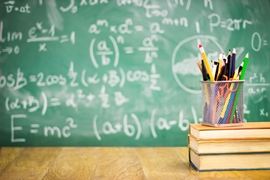06 August 2015
 Better educational outcomes for Aboriginal children must be a first order priority in any strategy to ‘close the gap” in life outcomes for Australia’s First People.
Better educational outcomes for Aboriginal children must be a first order priority in any strategy to ‘close the gap” in life outcomes for Australia’s First People.
Previewing his public lecture, Aboriginal Education Matters! Australia’s Choice lecture on August 12, at the University of South Australia’s City West campus, UniSA Professor Lester-Irabinna Rigney says much more needs to be done to ensure Aboriginal children get the same educational opportunities as other children.
The lecture, which will consider what skills Aboriginal Australians need to survive and thrive in 21st century society, comes hot on the heels of the recent publication of NAPLAN data which indicates little improvement in students’ literacy or numeracy since the controversial testing was introduced seven years ago.
With media reports highlighting how the NAPLAN scores of thousands of students in disadvantaged schools have plummeted since the Gonski report, Prof Rigney says the picture is even worse for Indigenous students who live further out of the main cities and who often cannot read or write properly by year seven.
“Indigenous children don't fail NAPLAN, schools and governments fail these children,” Prof Rigney says.
“While other children are incrementally advancing, giving their parents comfort and hope, statistically Indigenous children are languishing behind in core areas such as reading and maths.
“Aboriginal parents want their children to have access to the highest national standards of schooling, yet the wheels of change in teaching Aboriginal children are grinding to a halt.
“Nationally there is concern being expressed about education standards for all children, but when you look at the poorest, the most remote and the most disadvantaged students, data which includes many Indigenous kids, it is situation crisis.”
Prof Rigney says Aboriginal parents, leaders and academics have consistently called for Aboriginal education to be a priority because it is education that will close the gap between Aboriginal peoples and other Australians by improving employment, economic and health outcomes.
“Whether it is through greater professional development of teachers, or greater access to and use of educational resources in Aboriginal communities, or more relevant and culturally appropriate ways to engage students in learning - more can and must be done to ensure every child has the same opportunity to learn and excel and develop that will prepare them for life,” Prof Rigney says.
“Substantial new thinking and effort is required to overcome educational inequality.”
Prof Rigney is an expert in Aboriginal teaching and learning, having taught and worked in Aboriginal schooling and education for more than 20 years.
The Aboriginal Education Matters! Australia’s Choice lecture will take place at the Allan Scott Auditorium, City West, from 5.30pm on August 12.
To register to attend please click here
For interviews: Professor Lester-Irabinna Rigney: (08) 830 24529
Media contact: Will Venn office (08) 8302 0096 email will.venn@unisa.edu.au


